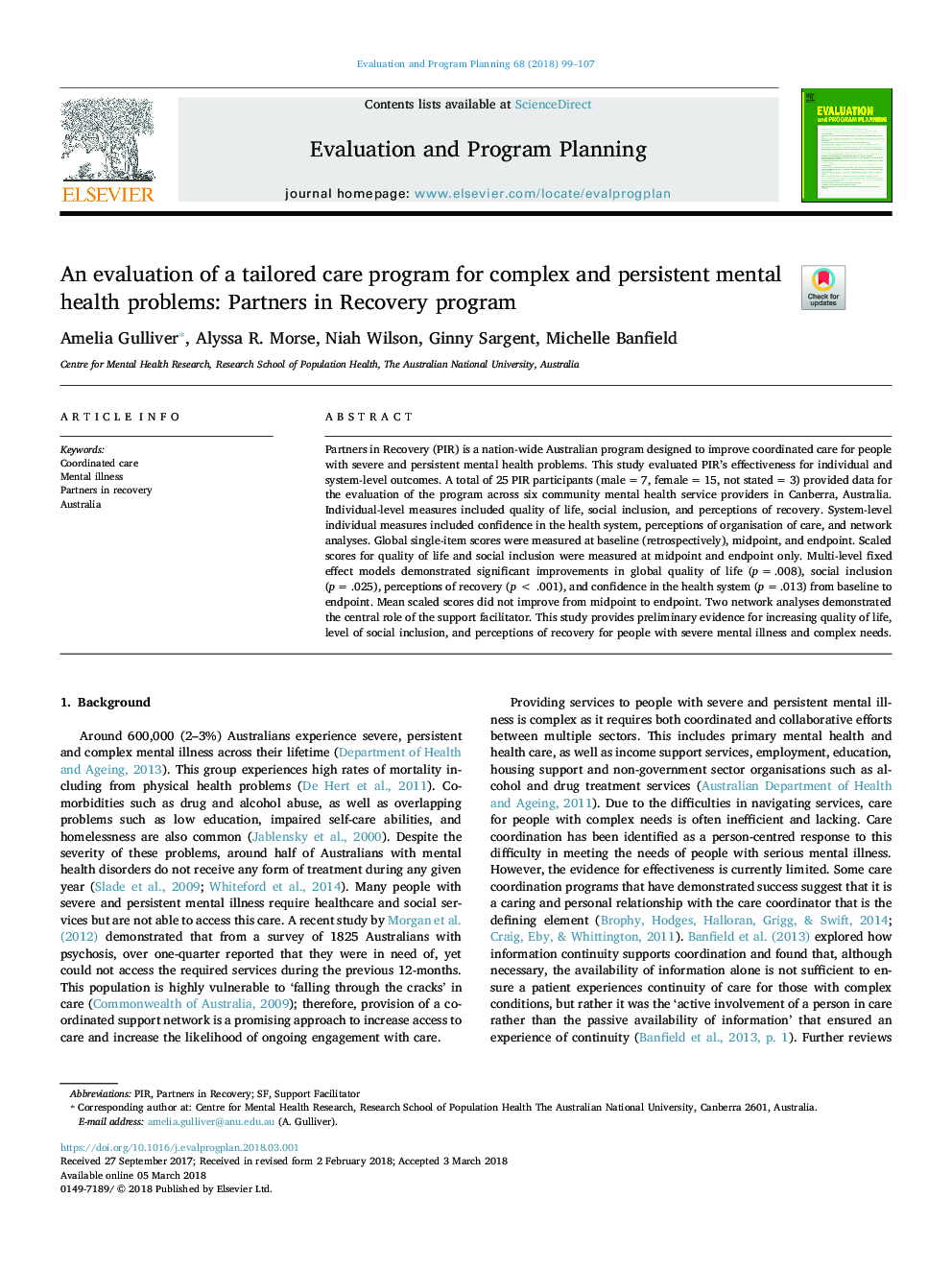| Article ID | Journal | Published Year | Pages | File Type |
|---|---|---|---|---|
| 6792297 | Evaluation and Program Planning | 2018 | 9 Pages |
Abstract
Partners in Recovery (PIR) is a nation-wide Australian program designed to improve coordinated care for people with severe and persistent mental health problems. This study evaluated PIR's effectiveness for individual and system-level outcomes. A total of 25 PIR participants (maleâ¯=â¯7, femaleâ¯=â¯15, not statedâ¯=â¯3) provided data for the evaluation of the program across six community mental health service providers in Canberra, Australia. Individual-level measures included quality of life, social inclusion, and perceptions of recovery. System-level individual measures included confidence in the health system, perceptions of organisation of care, and network analyses. Global single-item scores were measured at baseline (retrospectively), midpoint, and endpoint. Scaled scores for quality of life and social inclusion were measured at midpoint and endpoint only. Multi-level fixed effect models demonstrated significant improvements in global quality of life (pâ¯=â¯.008), social inclusion (pâ¯=â¯.025), perceptions of recovery (pâ¯<â¯.001), and confidence in the health system (pâ¯=â¯.013) from baseline to endpoint. Mean scaled scores did not improve from midpoint to endpoint. Two network analyses demonstrated the central role of the support facilitator. This study provides preliminary evidence for increasing quality of life, level of social inclusion, and perceptions of recovery for people with severe mental illness and complex needs.
Related Topics
Health Sciences
Medicine and Dentistry
Public Health and Health Policy
Authors
Amelia Gulliver, Alyssa R. Morse, Niah Wilson, Ginny Sargent, Michelle Banfield,
